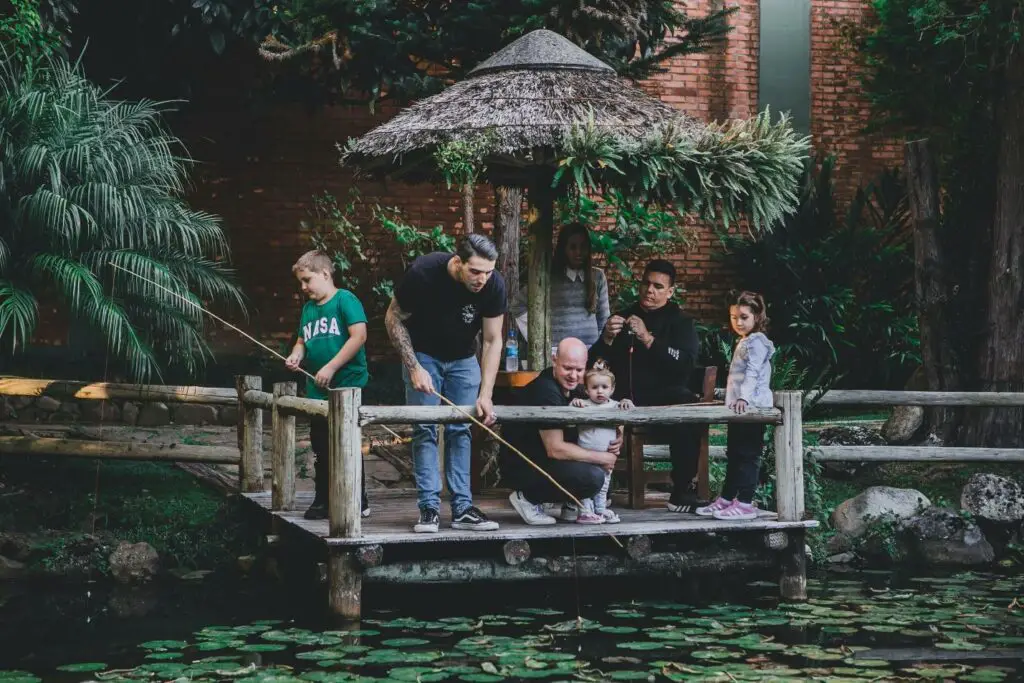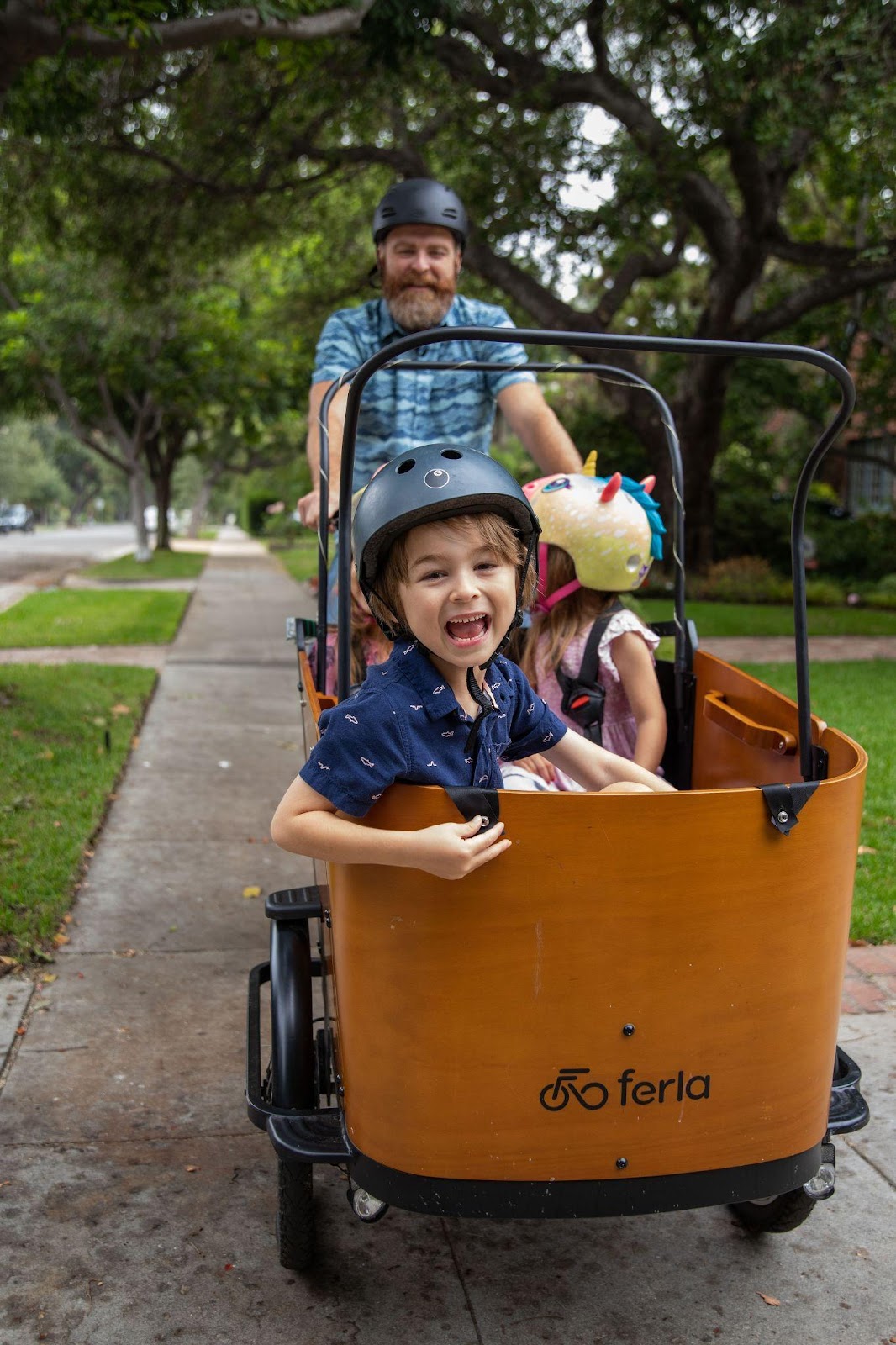9 Reasons Why Family Bonding Activities Should Involve All Generations

Family bonding is an essential part of healthy family dynamics and child development. Activities that bring together multiple generations of relatives strengthen familial ties and create cherished memories.
In today’s busy world, quality family time has taken a backseat. One survey showed that only 40% of American families have meaningful daily interactions for over an hour. This lack of connection can isolate elderly relatives and deprive children of valuable learning experiences with elders. But research demonstrates that strong family bonds promote well-being across generations. For example, a 10-year study found adolescents with close family ties had lower rates of depression and anxiety later in life.
Family bonding teaches kids important values like love, respect, and loyalty. Intergenerational activities allow children to benefit from elders’ wisdom while keeping traditions alive. They also reduce ageism and help seniors feel valued.
With nuclear families becoming more common, interactions with extended family are even more essential. So let’s shed some light on ten reasons why family bonding activities should involve grandparents, parents, children, and grandchildren actively.
1. Elderly as Role Models
When it comes to influential figures for children, one cannot overlook the impact of elderly relatives and professionals, such as social workers, who frequently interact with seniors and understand their unique experiences.
Elderly family members, through their actions and attitudes, can serve as compelling role models for young, impressionable minds. Witnessing their grandparents demonstrate a strong work ethic, effective stress management, dedication to family, and high moral values can deeply shape the children’s character.
Moreover, the resilience demonstrated by elders who’ve weathered significant life challenges such as immigration, war, or losing a partner can be an incredible lesson for the younger generation. Older adults who prioritize continuous education or community volunteering can inspire a lifelong learning and service mentality.
As children observe these seniors, they also indirectly learn about the important role a social worker for the elderly plays in supporting and enhancing the lives of the aging population. The real-life experiences of seniors, coupled with the insights provided by such professionals, impart invaluable lessons.
2. Memory Making
Shared experiences across generations create memories that are cherished in family history. Activities like baking cookies with grandma, reminiscing over old family photos with grandpa, or enjoying family reunions link past and future generations. Furthermore, engaging in activities like finding the family crest also adds a sense of connection to one’s roots and heritage. If you are wondering how to find your family crest consider getting help from heraldry experts. This way, you can learn about ancestry together and instill a sense of pride in the shared history.
3. Preservation of Family Traditions
Imagine the whole family is gathering together, engaged in an activity that’s been a family tradition for generations. Have you wondered about their origin or significance? Your elders have the answers. They know the stories behind these traditions, which young generation kids might overlook.
When you engage with elders in activities, be it whipping up a family recipe passed down through generations, commemorating religious holidays, or even playing a well-loved family game, you understand the meaning and the heritage behind these customs. Not only does this create a stronger bond, but it also keeps the family legacies alive.
It gives you a sense of belonging, a connection to your roots. So, cherish these moments and let the older generation guide you through the customs that make your family uniquely yours.
4. Educational Exchanges
Having family members from various generations under one roof creates an enriching learning environment for youngsters. The wisdom and life skills not typically found in school syllabi can be imparted by the older generation. For example, grandparents might introduce their grandkids to practical skills such as sewing, cooking, home repairs, balancing finances, or gardening.
Additionally, kids can learn about their lineage and family history directly from relatives who experienced different times. Engaging with the older generation gives children fresh perspectives on various life themes, including matrimony, professional life, parenting, and surmounting difficulties. Such practical life lessons are invaluable in molding well-rounded individuals.
5. Feeling of Worth for Seniors
For elderly relatives, family activities enhance their sense of belonging and importance. Seniors are often susceptible to social isolation and loneliness; intergenerational activities can significantly uplift their spirits.
When the elders actively interact with children, it reaffirms their valued place within the family. Transferring their knowledge and traditions to the younger generation can give them a renewed sense of purpose. Their contributions preserve the family legacy.
6. Fostering Empathy
Interactions with the elders within a family help children develop empathy. Kids can learn compassion, patience, and understanding by engaging with seniors with health or mobility issues, such as hearing impairment or wheelchair use.
Similarly, talking with elderly relatives from a different generation also cultivates empathy, as kids see things from different viewpoints. These experiences help nurture children into compassionate adults who can understand and relate to those different from themselves.
7. Dispelling Fears about Aging
Our society is often riddled with ageism, leading youngsters to develop misconceptions about aging. If children mostly interact with their age group, they may grow to fear getting older. However, regular interactions with healthy, active elders within the family can normalize the aging process. When kids observe their grandparents pursuing hobbies, volunteering, imparting wisdom, and savoring their twilight years, they learn that aging doesn’t have to negate a fulfilling life. Early exposure to the aging process sets a foundation for a more positive outlook on aging.
8. Social Development
Communication with family members across generations helps children develop their social skills. Every generation has its unique communication norms and styles. Children learn to adapt their communication tactics to match the conversational partner through interactions with seniors, parents, and younger relatives. Exposure to diverse generational perspectives also enhances social awareness and encourages finding commonalities. Regular practice of social skills with family members of all ages can help children easily navigate any social scenario.
9. Fosters Respect for Elders
Spending quality time with grandparents, aunts, uncles, and other older family members allows children to benefit from their wisdom and life experiences. When kids converse with elders and ask questions, they develop a deeper appreciation and respect for the older generation.
Elders have a wealth of knowledge to impart based on the unique times they grew up in. It allows them to share their stories and, along with it, their unique perspectives and advice. This, in turn, allows children to recognize their importance as family historians. This bonding also teaches kids to value their elders and their contributions to the family.
Conclusion
The most meaningful family bonding experiences include all generations. Activities that bring together grandparents, parents, children, and grandchildren foster deeper intergenerational understanding. They enable elders to impart knowledge, traditions, and values and develop respect, empathy, and positive perceptions of aging.






